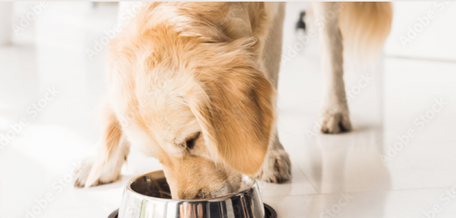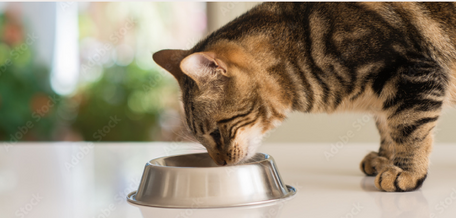When dogs are given antibiotics, it can disrupt their gut health by killing both bad and good bacteria. This can lead to various digestive issues and discomfort. Probiotics can play a key role in gut health recovery for dogs. Probiotics for dogs are beneficial microorganisms that support digestion and overall health. This article will explore how antibiotics affect canine gut health, the importance of probiotics in recovery, how to choose the right probiotics and tips for integrating them into your dog's diet.
Key Takeaways
- Antibiotics can harm the balance of good bacteria in a dog's gut, leading to symptoms like diarrhea and loss of appetite.
- Probiotics help restore healthy gut bacteria, reduce digestive problems, and strengthen the immune system after antibiotic use.
- When selecting probiotics for dogs, look for products that contain live cultures and specific beneficial strains.
- A natural or raw diet can enhance the effects of probiotics, promoting better gut recovery.
- Carefully monitor your dog's response to probiotics to ensure they are benefiting from the treatment.
The Impact of Antibiotics on Canine Gut Health
How Antibiotics Affect Gut Flora in Dogs
Antibiotics are powerful medications that can help treat infections in dogs, but they can also disrupt the natural balance of bacteria in their guts. This disruption can lead to various health issues. When antibiotics kill harmful bacteria, they often also kill beneficial bacteria, which are essential for digestion and overall health.
Common Symptoms of Gut Imbalance in Dogs
When a dog's gut flora is out of balance, it can show several signs, including:
- Diarrhea or loose stools
- Vomiting
- Loss of appetite
- Weight loss
- Lethargy
Long-term Effects of Antibiotics on Dogs
Long-term use of antibiotics can lead to more serious issues, such as:
- Chronic digestive problems
- Weakened immune system
- Increased risk of infections
It’s important to monitor your dog’s health after antibiotic treatment to ensure their gut is recovering properly.
In summary, while antibiotics are necessary for treating infections, they can significantly impact a dog's gut health. Supporting gut recovery with probiotics and a balanced diet is crucial for restoring their well-being.
The Role of Probiotics in Supporting Gut Recovery

Benefits of Probiotics for Dogs
Probiotics are live bacteria that are good for your dog's health, especially their gut. They help restore the balance of good bacteria after a dog has taken antibiotics. Probiotics can improve digestion, boost the immune system, and reduce diarrhea. Here are some key benefits:
- Restores gut balance: Probiotics help bring back the good bacteria that antibiotics may have killed.
- Improves digestion: They can help your dog digest food better and absorb nutrients.
- Boosts immunity: A healthy gut can strengthen your dog's immune system, making them less likely to get sick.
Importance of Probiotics Post-Antibiotic Treatment
After your dog finishes a course of antibiotics, their gut health can be affected. Probiotics for Dogs are important during this time because they:
- Help recover the gut flora.
- Reduce the risk of gastrointestinal issues.
- Support overall health and well-being.
How Probiotics Replenish Good Bacteria
Probiotics work by introducing beneficial bacteria into your dog's gut. This process can be summarized as follows:
- Colonization: Probiotics attach to the gut lining and start to multiply.
- Competition: They compete with harmful bacteria for space and resources.
- Production of substances: Probiotics produce substances that can inhibit the growth of bad bacteria.
Probiotics are a simple way to help your dog recover from antibiotic treatment and maintain a healthy gut. Consider adding options like blueberry raw goat milk or beef heart to their diet for extra support!
Selecting the Best Probiotics for Dogs

Choosing the right probiotics is essential for the gut health recovery of dogs. Not all probiotics are created equal, so it’s important to know what to look for. Here are some key features to consider:
Key Features to Look for in Probiotic Supplements
- Live Cultures: Ensure the product contains live bacteria that can help restore gut balance.
- Variety of Strains: Look for a dog digestive supplement with multiple strains of probiotics, as different strains can provide various benefits.
- Veterinarian Approved: Choose products that have been recommended by veterinarians to ensure safety and effectiveness.
Understanding Different Probiotic Strains
Different strains of probiotics can have unique effects on your dog’s health. Here are a few common strains:
- Lactobacillus: Helps with digestion and can reduce diarrhea.
- Bifidobacterium: Supports immune function and gut health.
- Enterococcus: Aids in nutrient absorption and balances gut flora.
Evaluating Probiotic Potency and Quality
When selecting a probiotic, consider the following:
- CFU Count: Look for a high colony-forming unit (CFU) count, which indicates the number of live bacteria in the product.
- Expiration Date: Check the expiration date to ensure the probiotics are still effective.
- Storage Instructions: Some probiotics need to be refrigerated to maintain their potency.
Probiotics can be a great way to help your dog recover from antibiotic treatment. They work by replenishing the good bacteria that antibiotics may have wiped out, helping to restore balance in the gut.
By keeping these points in mind, you can select the best probiotics to support your dog’s gut health after antibiotic use.
Integrating Probiotics into Your Dog's Diet

Combining Probiotics with a Natural Diet
Integrating probiotics into your dog's meals can greatly enhance their gut health. Here are some effective ways to do this:
- Mix probiotics into their regular food.
- Use raw food options like beef kidney or chicken blend to provide natural nutrients.
- Consider adding raw goat milk for extra benefits.
Tips for Adding Probiotics to Dog Meals
To ensure your dog gets the most out of probiotics, follow these tips:
- Start with a small amount to see how your dog reacts.
- Gradually increase the dosage as recommended.
- Monitor your dog's behavior and digestion for any changes.
Monitoring Your Dog's Response to Probiotics
It's important to keep an eye on how your dog responds to the new additions in their diet. Look for:
- Improved digestion and less gas.
- Increased energy levels.
- A healthier coat and skin.
Remember: Every dog is different, so what works for one may not work for another. Always consult your vet before making significant changes to your dog's diet.
Enhancing Gut Health Through Diet and Probiotics
The Synergy Between Diet and Probiotics
A balanced diet combined with probiotics for dogs can significantly help with gut health recovery for your dog. Feeding your dog the right foods helps restore balance in their digestive system. Here are some key points to consider:
- Whole Animal Nutrition Foods like those from BJ's Raw Pet Food provide natural dog food benefits including essential nutrients.
- Probiotic Benefits: Probiotics help replenish good bacteria, which is crucial after antibiotic treatment.
- Natural Ingredients: Look for products that use natural ingredients, such as the Ultimate Mix which includes beef, chicken, and salmon.
Raw Diets and Their Role in Gut Health
Raw diets can be beneficial for dogs recovering from antibiotic use. They often include:
- High-quality proteins: Essential for muscle repair and overall health.
- Healthy fats: Like omega-3 fatty acids found in salmon, which support skin and coat health.
- Natural enzymes: Aid in digestion and nutrient absorption.
Creating a Balanced Diet for Optimal Gut Recovery
To support your dog's gut recovery, consider the following:
- Incorporate Probiotics: Add probiotic supplements to their meals, such as the Daily Raw Complete Powder for improved digestion.
- Monitor Their Response: Keep an eye on how your dog reacts to new foods and probiotics. Adjust their diet as needed.
- Consult Your Vet: Always check with your veterinarian before making significant changes to your dog's diet.
A well-rounded diet, combined with probiotics, can lead to a healthier and happier dog. Remember, every dog is unique, so tailor their diet to fit their specific needs!
Understanding the Science Behind Probiotics for Dogs

The Microbiome and Its Importance in Dogs
The microbiome is a collection of bacteria and other microorganisms living in your dog's gut. These tiny creatures play a crucial role in digestion and overall health. A balanced microbiome helps:
- Break down food
- Absorb nutrients
- Protect against harmful bacteria
Research on Probiotics and Canine Health
Studies show that you can restore balance in the gut by using probiotics after antibiotics. They can:
- Reduce diarrhea caused by antibiotics.
- Improve digestion and nutrient absorption.
- Support the immune system.
Future Trends in Probiotic Use for Dogs
As more pet owners learn about gut health, the demand for probiotics is growing. Future trends may include:
- Customized probiotic blends for specific health needs.
- More research on the effects of different strains.
- Increased availability of probiotic-rich foods, like tripe filled beef trachea and wild-caught Alaskan salmon.
Probiotics are essential for helping dogs recover from antibiotic treatments. They not only restore gut health but also enhance overall well-being.
In conclusion, understanding the science behind probiotics can help dog owners make informed choices for their pets' health. By integrating probiotics into their diet, dogs can enjoy better gut health and a happier life.
Probiotics for Dogs can be a game-changer for your dog's health! These tiny helpers support digestion and boost the immune system, making your furry friend feel their best. If you want to learn more about how probiotics can benefit your dog, visit our website for more information and tips!
Conclusion
In summary, helping your dog recover from antibiotic treatment is important for their overall health. Antibiotics can upset the balance of good bacteria in their gut, leading to problems like diarrhea and a lack of appetite. Probiotics play a key role in fixing this by adding back the good bacteria that antibiotics may have wiped out. When choosing a probiotic for your dog, look for ones that have live cultures and specific strains that are beneficial. Additionally, pairing probiotics with a natural or raw diet can enhance their effectiveness. By taking these steps, you can support your dog's gut health and help them feel better after antibiotics.
Frequently Asked Questions
How do antibiotics affect my dog's gut health?
Antibiotics can kill both bad and good bacteria in your dog's gut, leading to an imbalance. This can cause digestive issues and other health problems.
What are the signs that my dog has a gut imbalance?
Common signs include diarrhea, loss of appetite, vomiting, and changes in behavior. If you notice these, it might be due to gut issues.
Why are probiotics important after my dog takes antibiotics?
Probiotics help restore the good bacteria that antibiotics may have killed. This can help your dog recover faster and improve their overall health.
What should I look for when choosing probiotics for my dog?
Look for products that contain live cultures and specific strains that are good for dogs. Check the label for quality and potency.
Can I mix probiotics with my dog's regular food?
Yes, you can easily add probiotics to your dog's meals. Just follow the instructions on the product and monitor how your dog reacts.
How does my dog's diet affect their gut health?
A balanced diet, especially one that includes raw or natural foods, can help support gut health and work well with probiotics.




















